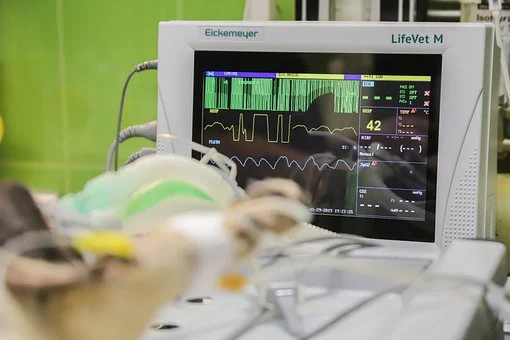
Heart surgery is typically used for patients with coronary artery disease, which is the buildup of plaque in the arteries that supply blood to the heart muscle. Other conditions that may require heart surgery are:
- Aortic valve stenosis, which is a narrowing of the aortic valve
- An aortic aneurysm is a dilation or ballooning of the major artery that carries blood from the left ventricle of the heart to the body
- Mitral valve prolapse, which is when the mitral valve does not close properly and allows blood to leak back into the left atrium
The cost of heart surgery will vary depending on the procedure being performed and the hospital where it is taking place. In general, though, a heart surgery can be pretty expensive. Typical heart surgery can cost anywhere from $10,000 to $30,000. For example, a coronary artery bypass graft (CABG) procedure can cost around $25,000, while a mitral valve replacement can cost upwards of $50,000.
There are a few ways to help offset the cost of heart surgery. Here are a few tips:
Check With Medicare Or Your Insurance Provider
Most people know they can check with Medicare or their insurance provider to see if surgery is covered. However, many people do not realize that there are other ways to reduce the cost of surgery.
If you’re 65 or older, you’re eligible for Medicare. Part A of Medicare covers inpatient hospital stays, while Part B covers outpatient procedures. Medicare can cover heart bypass surgery, angioplasty, and other heart procedures. Several supplemental insurance plans can help cover the cost of surgery. For instance, many employers offer health insurance plans that include surgery coverage.
If you’re retired, you may be eligible for Medicare Advantage plans, which are offered by private insurers and approved by Medicare. These plans often have lower out-of-pocket costs than Original Medicare. If you have private insurance, check with your provider to see if heart surgery is covered under your plan.
Consider Alternative Treatment Options
When it comes to our health, most of us are happy to put our trust in the hands of doctors and other medical professionals. We assume that if a doctor recommends a treatment, it must be the best possible option for us. However, there are times when doctors may not have our best interests at heart – or they may not have all the information they need to make an accurate diagnosis. In these cases, it is crucial to consider alternative treatment options.
There are several reasons why you might choose to pursue alternative treatment options. It may be that you don’t believe the doctor’s diagnosis, or you may feel that the recommended treatment isn’t proper for you. You may also want to explore other options for a second opinion or because you’re looking for a more holistic approach to healing. Whatever your reason, it’s important to remember that you always have the right to choose your course of treatment. For instance, it may help you discover what are aldosterone receptor antagonists and how you can use it to improve your heart condition.
When considering alternative treatment options, it’s essential to do your research and talk with your doctor about any potential risks and benefits. Be sure to ask questions and get as much information as possible to make an informed decision about what’s best for you. Many different types of alternative treatments are available, so be sure to explore all your options before making a decision.
These are just a few tips that can help offset the cost of heart surgery. Be sure to talk with your doctor and explore your options before deciding on treatment. With a little research and planning, you can find a way to get the care you need without breaking the bank.
Look Into Government Programs
Several government programs can help offset the cost of heart surgery. The Social Security Administration offers a Supplemental Security Income (SSI) program for those unable to work due to a disability. If you are receiving SSI benefits, you may be eligible for help with medical expenses, including the cost of heart surgery.
The Centers for Medicare and Medicaid Services offer a program called Medicaid. This program provides health coverage for low-income individuals and families. To see if you qualify for Medicaid, contact your state’s Medicaid office.
Check With The Hospital For Financial Assistance Programs
Most people know they can check with Medicare or their insurance provider to see if surgery is covered. However, many people do not realize that there are other ways to reduce the cost of surgery. One way is to check with the hospital for financial assistance programs.
Many hospitals offer financial assistance programs for those who need help paying for their care. These programs can help with medical expenses, including the cost of heart surgery. Some hospitals also have charity care programs that offer free or discounted rates to those who cannot afford to pay the full price.
If you need financial assistance, contact the hospital where your surgery will occur. They will be able to tell you about the financial assistance programs available and how to apply for them.












